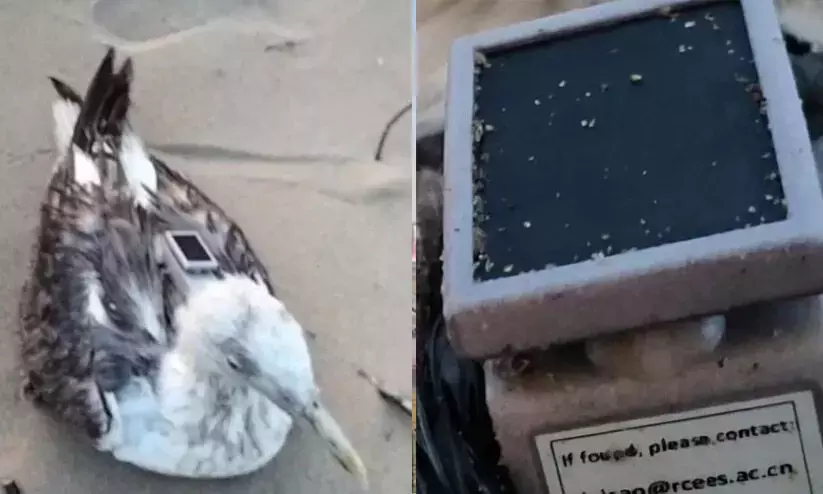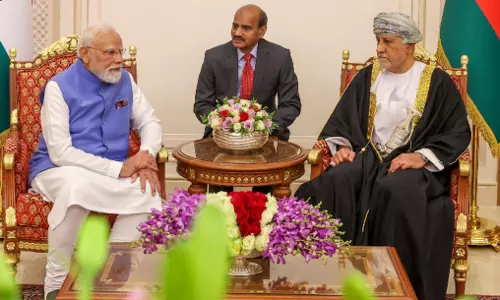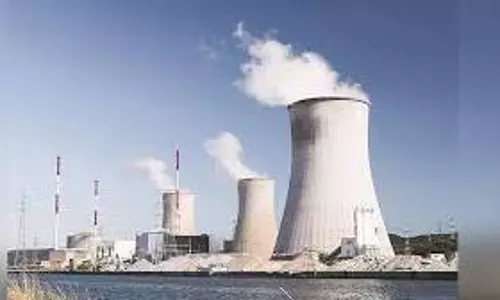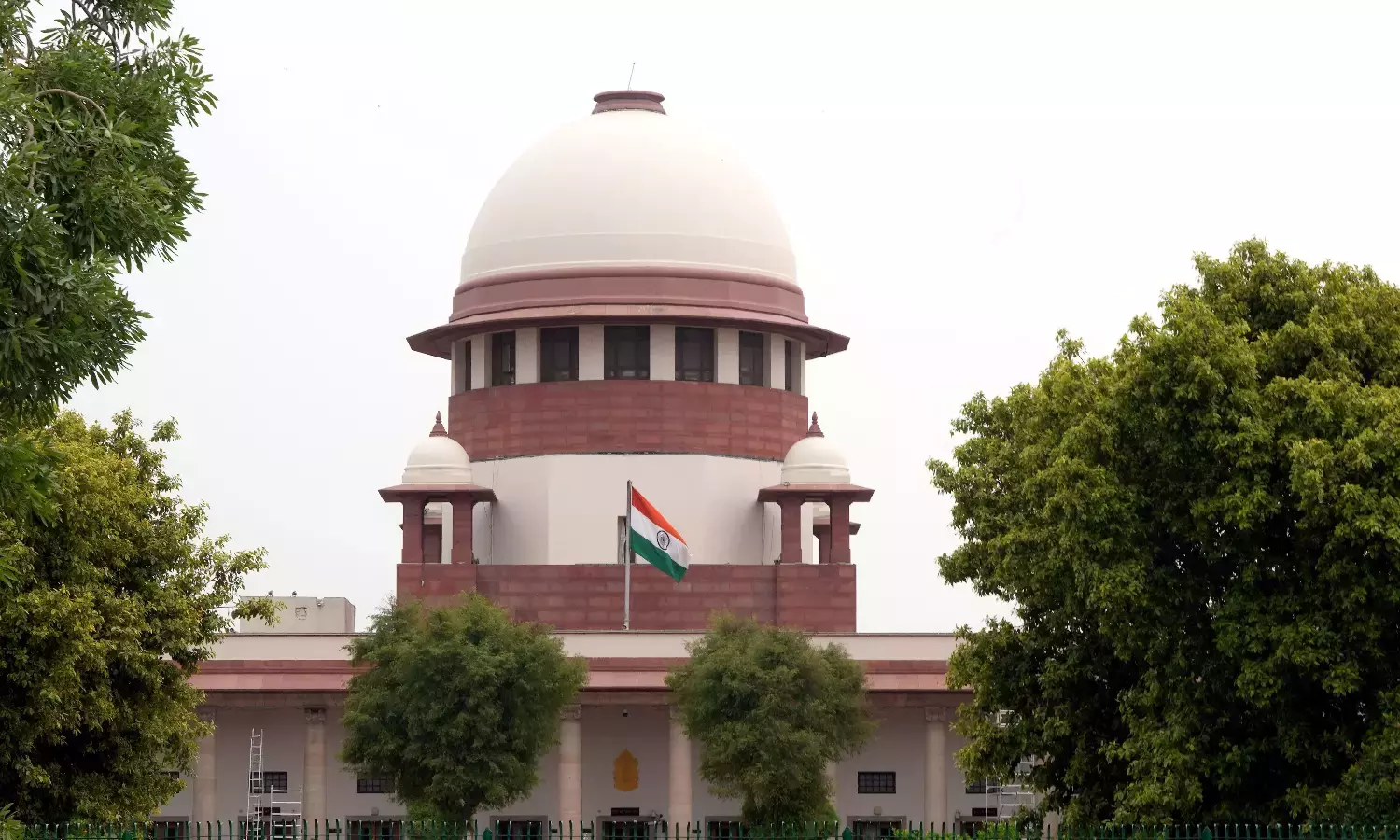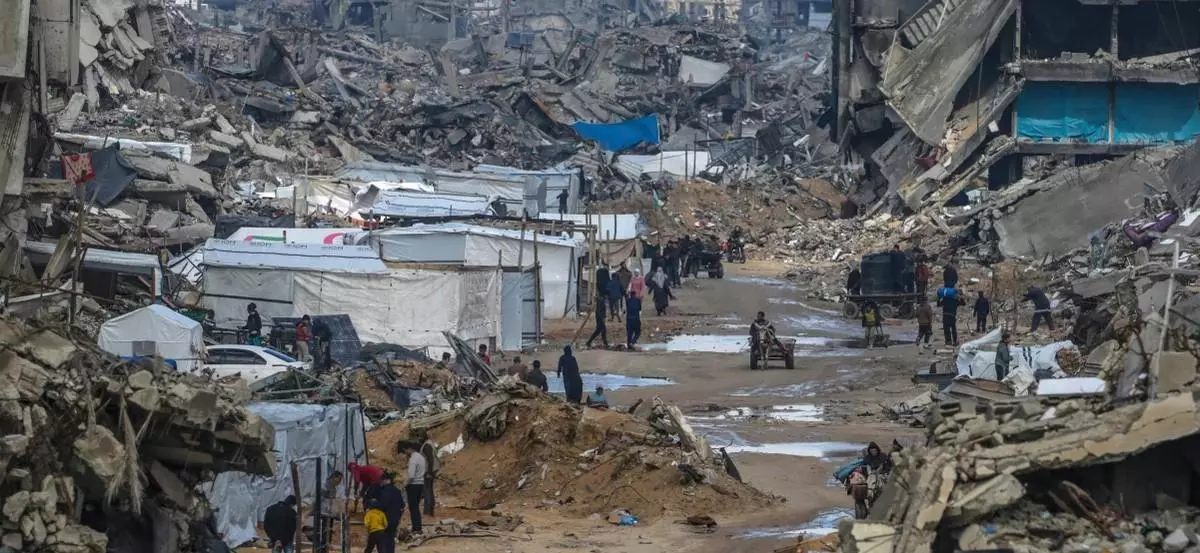
With ceasefire uncertain, Arab leaders to endorse counterproposal to Trump's Gaza plan
text_fieldsCairo: Despite the uncertainty surrounding the continuance of the Israel-Hamas ceasefire, Arab leaders in Cairo on Tuesday are expected to endorse a counterproposal to U.S. President Donald Trump's calling for the depopulation of the Gaza Strip and its transformation into a beach destination.
Abdel-Fattah el-Sissi, the president of Egypt, hosted the summit which was attended by the foreign minister of Saudi Arabia, the vice president of the United Arab Emirates, and the emir of Qatar. These nations are essential to any post-war strategy. U.N. Secretary-General António Guterres was also present
Israel has accepted what it claims is an alternative U.S. proposal for a ceasefire and the release of hostages taken by Hamas on October 7, 2023, during an attack on southern Israel, AP reported.
Israel has blocked the entry of food, fuel, medicine, and other supplies into Gaza in a push for Hamas to accept the new proposal, and it has warned of further consequences, raising fears of a return to fighting.
The blocking of aid drew widespread criticism, with human rights groups claiming that it violated Israel's obligations as an occupying power under international law.
The new plan would require Hamas to release half of its remaining hostages, their primary bargaining chip, in exchange for an extension of the ceasefire and a commitment to negotiate a sustainable truce.
A crucial element of the first phase, the release of additional Palestinian prisoners, was not mentioned by Israel.
Egypt’s post-war plan
A 112-page draft of a $53 billion plan to rehabilitate Gaza by 2030 without expelling its people was published by Egypt.
The first phase involves clearing the more than 50 million tonnes of debris left by Israel's military offensives and shelling, as well as beginning the cleanup of unexploded bombs. While restoration is underway, Gaza's people would be housed in hundreds of thousands of temporary housing units.
Some of the debris would be utilised as infill to develop extended areas on Gaza's Mediterranean shore, while the remainder would be recycled.
The proposal calls for a comprehensive redesign of the strip in the upcoming years, including the construction of "sustainable, green, and walkable" urban areas and homes, as well as the use of renewable energy sources. It creates industrial zones, and large park areas, and restores agricultural fields.
Additionally, it entails the opening of a commercial port, a fishing port, and an airport. An airport and a commercial port were to be opened in Gaza as part of the Oslo peace agreements in the 1990s, but the plans stalled when the peace process broke down.
A temporary government of political independents would take over from Hamas until a reformed Palestinian Authority could take over, according to the plan. The leader of the Western-backed government and an opponent of Hamas, Palestinian President Mahmoud Abbas, was present at the summit.
Israel and the United States have demanded the disarmament of Hamas and have ruled out any role for the Palestinian Authority in Gaza.
Hamas, which rejects Israel, has stated that it is prepared to hand up control of Gaza to other Palestinians but will not surrender its weapons until a Palestinian state is established.
The plan “preserves the right of Palestinian people in rebuilding their nation and guarantees their existence on their land,” according to Egyptian President Abdel Fattah el-Sissi, who spoke during the summit.
In order to reach a "comprehensive, just, and lasting settlement" for the Palestinian cause, he added, a parallel path for peace is required.
“There will be no true peace without the establishment of the Palestinian state,” el-Sissi said. “It’s time to adopt the launching of a serious and effective political path that leads to a permanent and lasting solution to the Palestinian cause according to the resolutions of international legitimacy.”
According to an early version of the statement endorsing the idea, the U.N. Security Council should send international peacekeepers to Gaza and the Israeli-occupied West Bank in order to find a "permanent and just solution" for the Palestinian cause. In a subsequent draft, the reference to peacekeepers was removed.
Israel has pledged to keep open-ended security control over both territories, which it took during the 1967 Mideast war and which Palestinians seek for their future state. The majority of Israel's political elite and government oppose Palestinian statehood.
Last month, Trump shocked the region by proposing that Gaza's approximately 2 million Palestinians be resettled in other countries. He stated that the United States would seize control of the land and transform it into a Middle Eastern "Riviera."
Israeli Prime Minister Benjamin Netanyahu supported the proposal, which was strongly opposed by Palestinians, Arab countries, and human rights experts who claimed it would violate international law.




